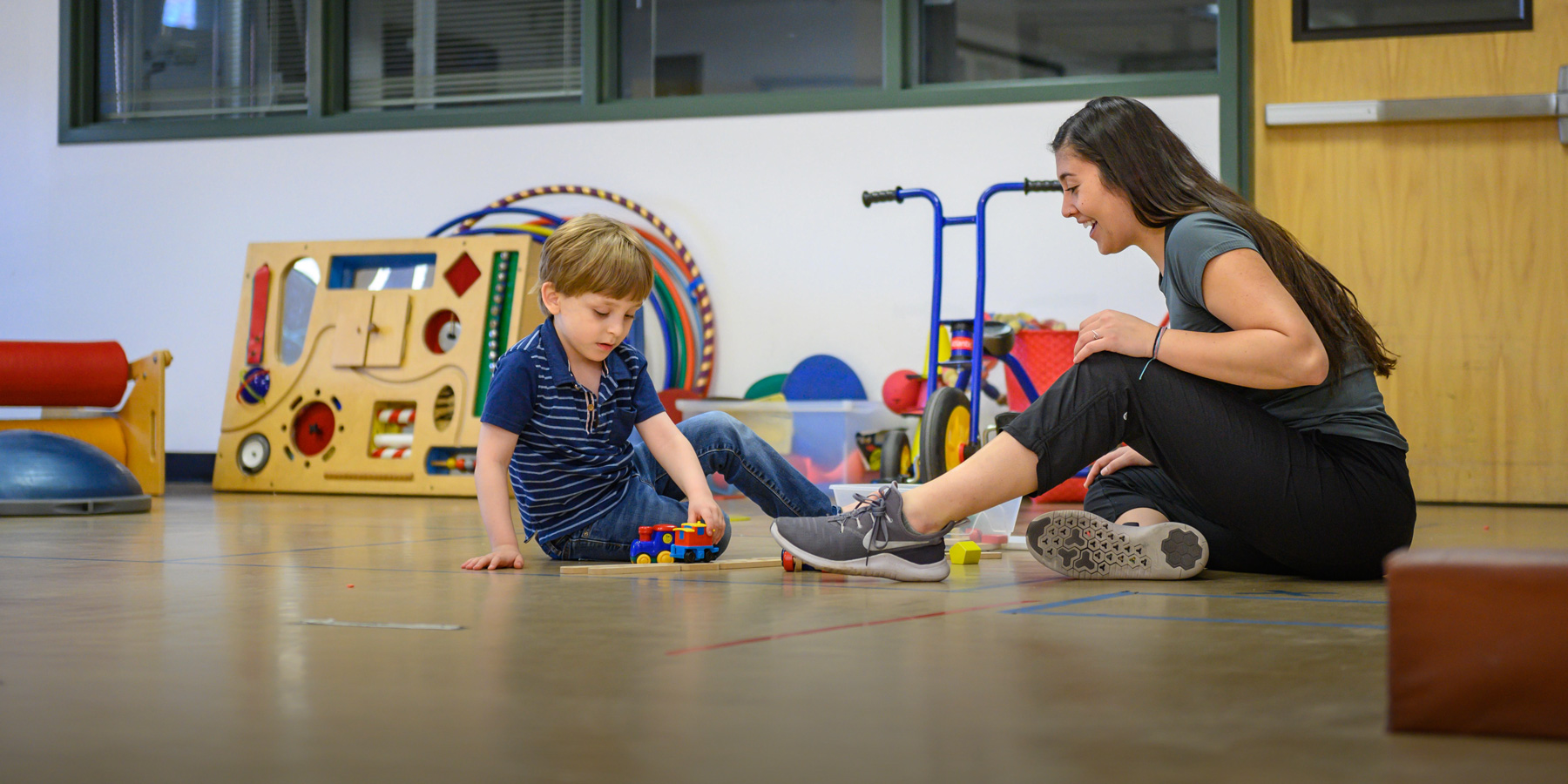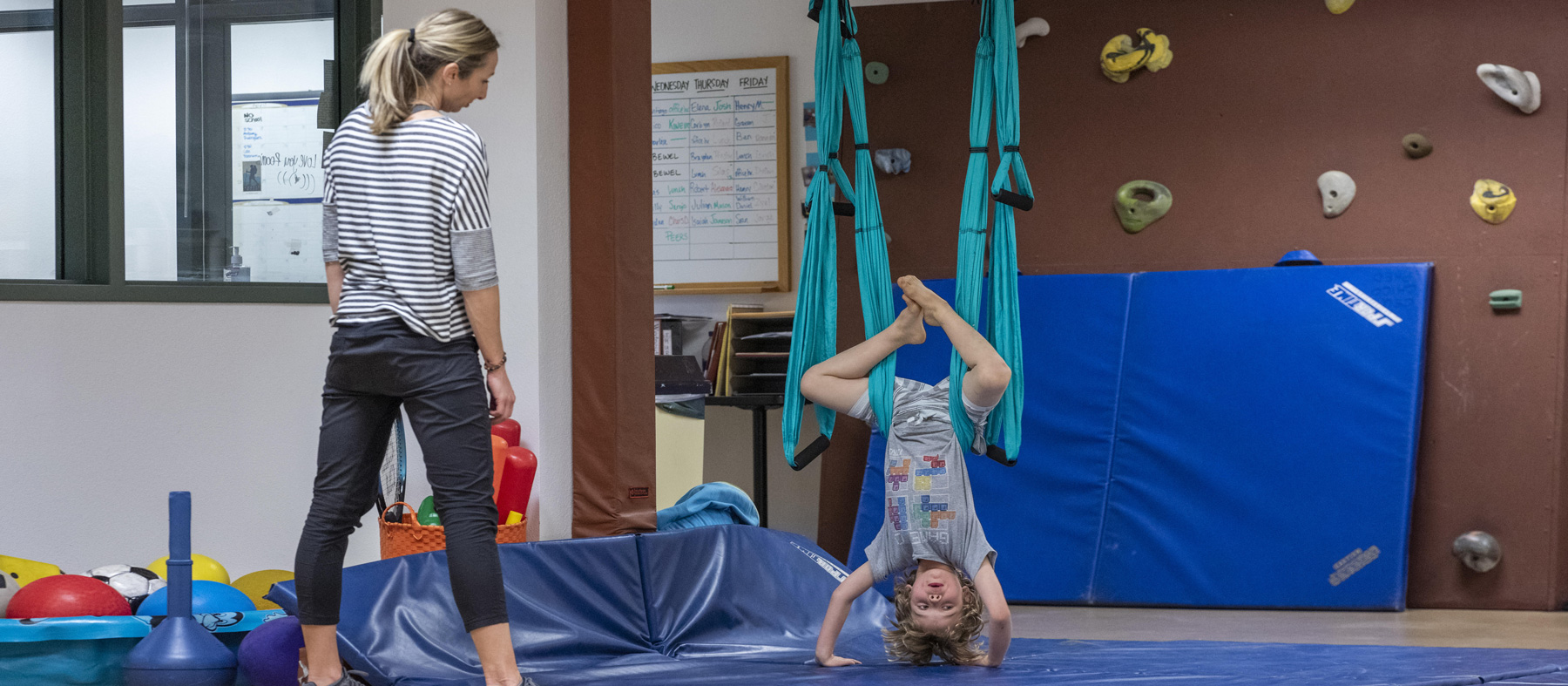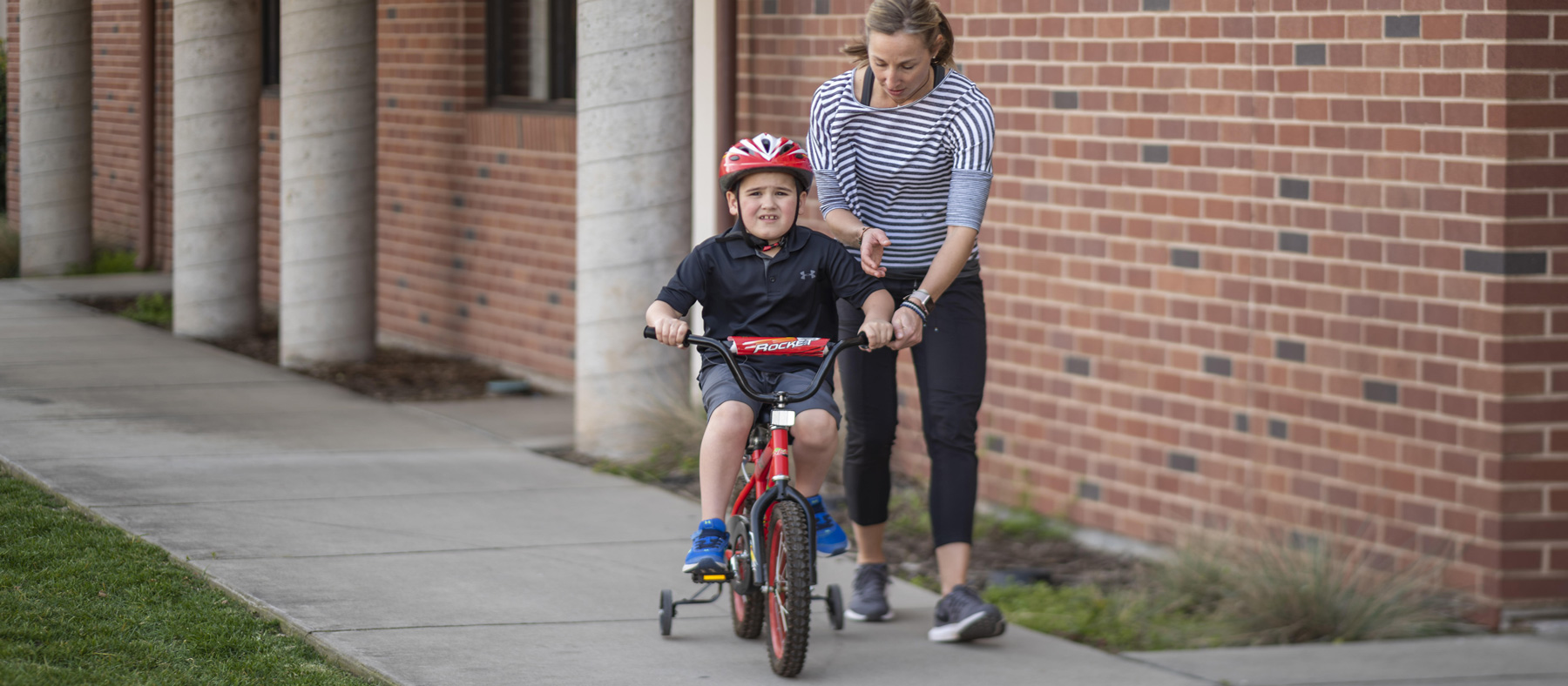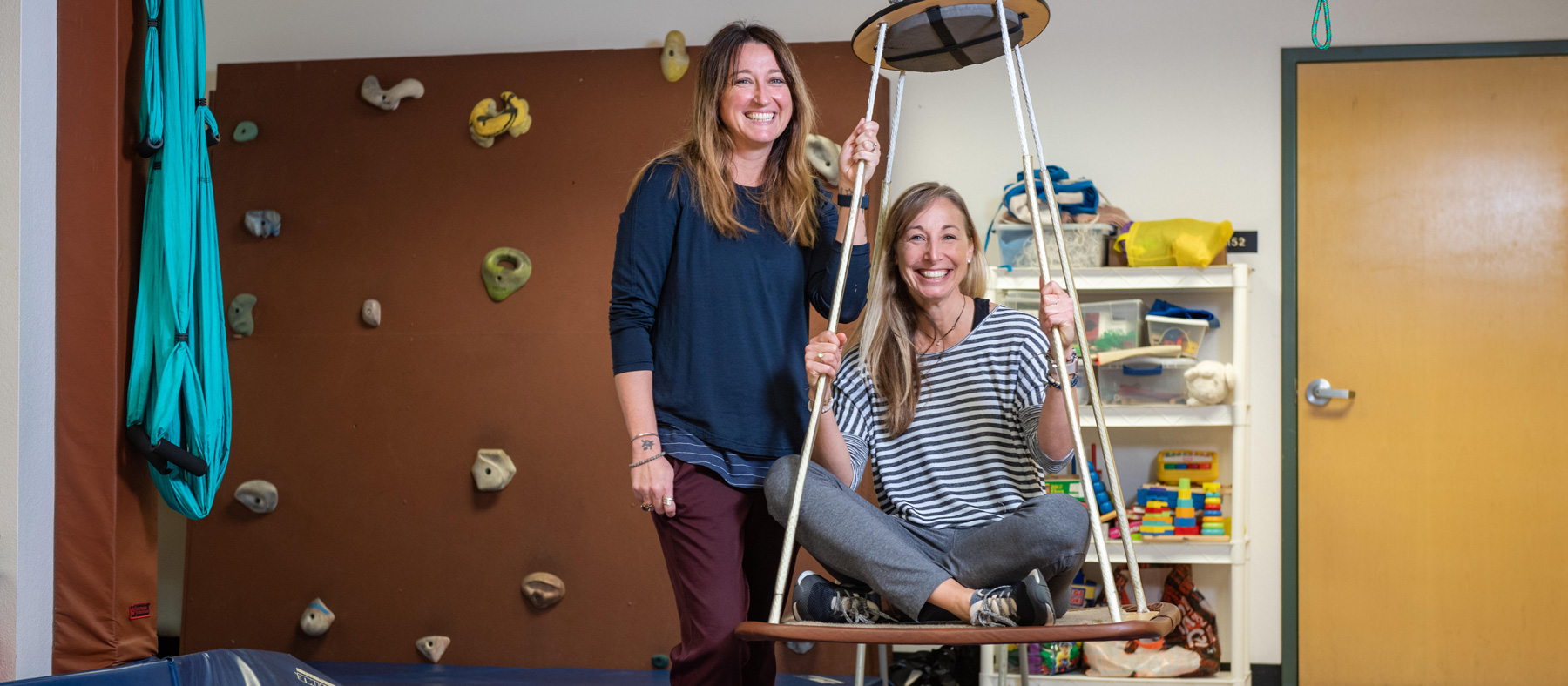
Let’s Get Moving!
The Chico State Autism Clinic utilizes adapted physical education to prep children for physical activity in a variety of settings.
Autism is a developmental disability that currently affects one in 54 individuals in the U.S.
Playing catch, learning to ride a bike, jumping into a foam pit. These activities all sound like part of a regular day of fun for a young child. But at the
Chico State Autism Clinic, they amount to so much more. As part of the Kinesiology Department in the College of Communication and Education at
California State University, Chico, the clinic promotes the sensory, motor, communicative and cognitive skills of individuals with autism through a multi-sensory approach to learning.
“The clinic started as part of a service learning component to a class in 2004," says Josephine Blagrave, Ph.D., assistant professor in the Department of Kinesiology at Chico State. “It was part of the adapted physical education program, and I was an undergrad student at the time in that first cohort." She now serves as the Autism Clinic director.
The clinic's main goal is to help kids with autism to improve their gross motor and object control skills. “We go through everything with the lens of adapted physical education, which is adapting the activity to fit the individuals so they can be lifelong participants in physical activity," Dr. Blagrave explains.
People with autism often struggle in social settings, so improving their motor skills will make it easier to play with peers. “That way, they only have to focus on one thing that's challenging instead of two," she says.

"The kids have a lot of sensory needs, so we might swing on the swing for two or three minutes," says Dr. Blagrave.
SETTING GOALS
Ninety percent of the families at the clinic are referred by
Far Northern Regional Center, an agency that serves persons with developmental disabilities. To qualify for services, the child has to possess a motor skills deficit and sensory needs that make it challenging for them to be served in a regular physical education or adapted physical education setting. “When they come to us, it's in a one-on-one or small group setting," Blagrave says.
A skills inventory is conducted to assess the child's level, and four or five goals are set. “The kids have a lot of sensory needs, so we might swing on the swing for two or three minutes, then throw a ball back and forth, then run and jump in the foam pit," she says. Sessions take place once a week for 50 minutes, and parents usually attend in order to learn skills for working with their child at home.
“We're always trying to incorporate whatever the family, the school or other services are working on. It doesn't matter if we want the kid to practice biking skills if it's not a family that bikes. Every six months, we reevaluate, write up a new report, check in with the parents and then move on from there."
Participants range from three to four years old all the way up to 18.

“We're always trying to incorporate whatever the family is working on. It doesn't matter if we want the kid to practice biking skills if it's not a family that bikes," says Dr. Blagrave.
MAKING THE CONNECTION
Most of the Chico State students who work at the clinic major in kinesiology, child development or speech and language communication disorder. There's also an interdisciplinary autism class attached to the clinic that Blagrave teaches.
“We might have some of those students working hands-on under one of the clinicians, helping with the instruction in a session," Blagrave says. “A lot of parents have a ton of nutrition questions, so nutrition students will interview the family to figure out what their needs are and then find recipes and different ways to incorporate more nutritious foods into the kids' meals."
Blagrave says students gain experience at the clinic that can't be learned in a book. “It's so different when you get out in the world and interact with families," she says. “The great thing about the clinic and the class is we bring in adults with autism, we bring in families who have kids on the spectrum. We show students what autism can look like. That connection is the biggest thing they could ever get from it."

Dr. Josephine Blagrave, Ph.D. (right) and Carli Ross, lecturer in the Department of Kinesiology, pose at the Chico State Autism Clinic.
LONG-LASTING EFFECTS
COVID-19 forced the clinic to shut down in March. But that didn't stop the staff from continuing sessions. Within three weeks, they switched over almost all 60 families to remote services tailored to their specific needs.
“What's really challenging is balancing the safety and knowing families with disabilities are so much more disenfranchised than so many other groups right now," she says.
And that's what drives Blagrave to continue in the face of adversity. Since its inception, the clinic has served more than 500 families, and each one brings a unique success story.
“This one kid was classified as having Asperger's, and he was such a perfectionist that he'd have a nervous breakdown if he shanked a golf ball," she recalls. “We would sit outside on our golf course in the summer when it's so hot, swinging golf balls. We got a letter from his parents, probably three years ago, that this kid was playing golf and living his best life. I mean, it's big things and little things."
Story: Michelle McCarthy
photoGRAPHY: PATRICK RECORD
Share this story